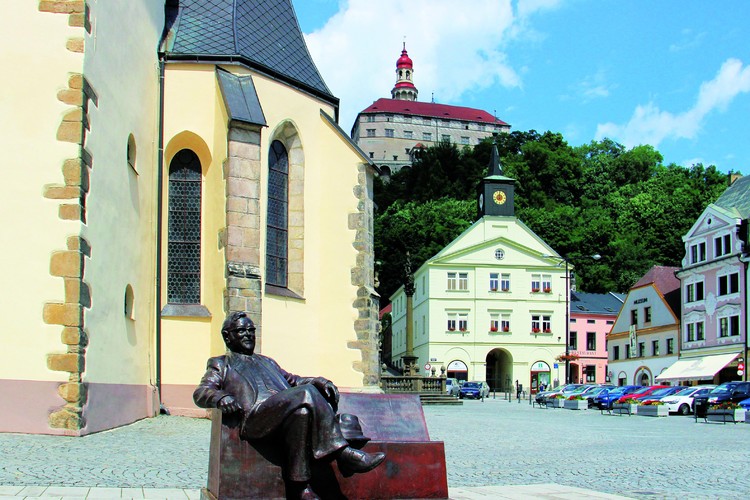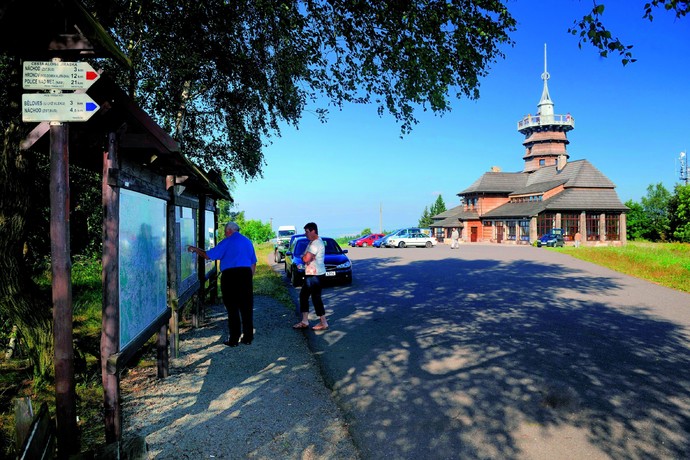10Danny Smiřický as a guide throughout the city

- 2:00 P.M.
- every sunday
- Maximum 30 people. We recommend making a reservation at +420 777 642 009
- Ubytování
appearing as characters from his novels as well as other tourist attractions in the city.
- 2:00 P.M.
- every sunday
- Maximum 30 people. We recommend making a reservation at +420 777 642 009
- Ubytování
- Masarykovo náměstí 1
- 547 01 Náchod
The connection between Prague and Náchod is quite regular, but every time is different and, unfortunately, you cannot avoid transfers. The morning train connection from Prague at 8:07 a.m. at the main railway station is relatively convenient, where with a single transfer in Starkoč, you will get to Náchod in less than three hours. It is possible to use other train connections through Hradec Králové or Pardubice, but there you have to count on several transfers. If you prefer to take a bus, take advantage of the departure at 9:00 a.m. at the Florence station. In Hradec Králové, you will have to transfer – you can use the free hour between connections for a short tour of Hradec Králové. Hradec is the city where Karel Čapek, one of our presented personality characters, used to dwell.
From the Polish
side, you have to use a combination of buses that will take you from Wroclaw to
Náchod in roughly four hours. The ideal link is from Wroclaw at 9:10 a.m. With
one transfer in Kudowa - Zdrój, you will be in Náchod before one o’clock and be
able to move comfortably to the event location of ‘‘Danny Smiřický“ in front of
the Náchod City Information Center.
Where do you look?
The city of Náchod is the birthplace of Josef Škvorecký, and also the place where several of his novels take place. For this purpose, Škvorecký renamed Náchod Kostelec. At random, let’s name “The Cowards,“ “The Great Season“ and “The Tale of the Engineer of Human Souls.“ Some of the “Náchod“ work was created after Škvorecký had already emigrated in the year 1969, thus drawing in his experiences from his native country. After the revolution, the writer often returned to Náchod, and he was interested in the happenings of the city until the end of his life.
Josef Škvorecký was a Czech writer, translator, publicist and later an exile publisher. His literary work is exceptional for its realistic description of the time displayed. In exile, as a publisher, he supported the creations from Czech exile authors and authors prohibited in Czechoslovakia.
Many of Škvorecký‘s works were adapted into film. He received the biggest popularity by his “Tank Battalion,“ the first post-revolution era private film. Literarily the most valuable novel “The Cowards,“ which made a breakthrough for Škvorecký, however, was never adapted into a film allegedly because many of the characters of the book were not yet completely forgotten at that time.
Did you know that?
… Jaroslav Celba, the music author of many bedtime fairytales, such as “Štaflík and Špagetka” or “Fairytales from Moss and a Fern,” is hiding under the nickname Harýk in the novel “The Cowards from Škvorecký“?

